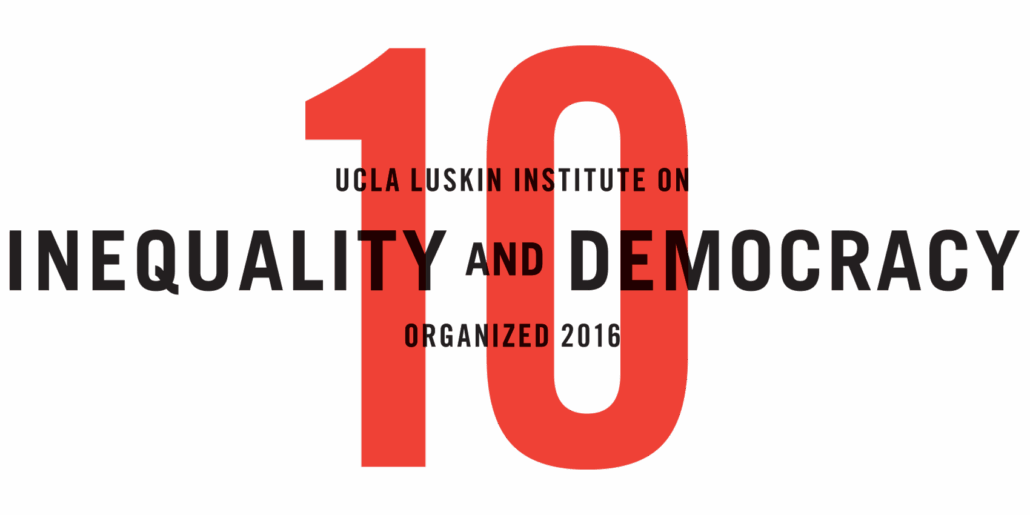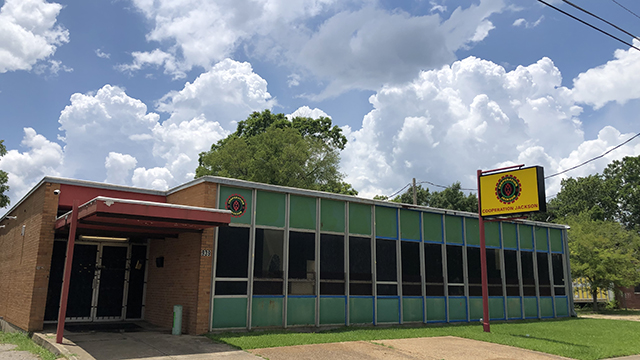The Balagoon Center at Cooperation Jackson headquarters in West Jackson, Mississippi. Image credit: Bethel S. Moges
Black Anti-settler Placemaking: Examining Cooperation Jackson’s Eco-villages in Mississippi and Vermont
Bethel S. Moges, Anthropology, UCLA
Ideas and Organizing Doctoral Awardee 2023-24
There are no grocery stores in West Jackson, Mississippi. In February of 2020 the state auditor arrested a group of Mississippi politicians, administrators and high-profile businessmen in connection with over $90 million plundered from the federally funded Temporary Assistance for Needy Families (TANF) program. In August of 2023, what had been an ongoing water crisis – years of dilapidated municipal infrastructure, dangerously low water pressure and incessant ‘boil water notice[s]’ – made national news when the Mississippi government finally declared a state of emergency. In March of that year, the governor signed House Bill 1020 expanding the jurisdiction of the state-run Capitol Police, overlapping that of Jackson’s police department and installing an independently selected council of judges to adjudicate Capitol Police cases. The following month, Jackson’s city council failed to come to an agreement about the city’s trash collection contract, and residents spent weeks without waste disposal services. West Jackson, the poorest, Blackest neighborhood in the Blackest city in the poorest state of the U.S., has endured a constant volley of state divestment from life-giving infrastructures and services on the one hand, and investment in policing, mass incarceration and the varied interests of private wealth on the other.
Cooperation Jackson (CJ) is a Black-led eco-socialist collective organized in response to this racialized violence. The group is heralded internationally as a beacon of urban sustainable community development and Black and Brown self-determination on U.S. soil. A small group of self-managed worker-owned cooperatives, CJ aims to build a “solidarity economy” in the heart of the U.S. South. In direct response to the historical and contemporary systemic abandonment that has long faced Black Mississippians and Black communities across the U.S. and beyond, Cooperation Jackson has developed a multifaceted approach: in addition to worker-owned cooperatives, CJ has purchased over 30 plots of land and established a land trust to combat gentrification and maintain affordable housing for Jackson’s Black residents. The group’s Mississippi headquarters – The Balagoon Center – occupies three large adjacent buildings, multiple meeting halls, office spaces, an art gallery and a small farm. In the past year, the farm and multiple of the homes have been equipped with water catchment and filtration systems. Just up the street from their headquarters, Cooperation Jackson purchased a sprawling, nearly-vacant outdoor mini mall, now renamed the Ella Baker Plaza. Eventually, Cooperation Jackson plans to reinvigorate the husk of the plaza’s long-since closed grocery store, replacing it with a food co-op supplied partially with the produce from their Freedom Farm. For now, the cavernous space serves as a donation processing and distribution center for their emergency response initiatives, including the provision of potable water. Most recently – and perhaps most ambitiously – Cooperation Jackson has purchased 175 acres of farmland in Marshfield, Vermont. In an announcement entitled “Decolonization, Reparations and Climate Emergency Preparedness” CJ explained their efforts in Vermont are part of “plan[ning] for the coming waves of climate migration within the context of fighting for decolonization, in the form of land back transfers to Indigenous nations and land steward agreements for Blacks and Latinos based on these land grant transfers.” (Akuno 2021). In sum, in the face of increasing climate insecurity and systemic divestment from public health and welfare coupled with growing investment in policing, incarceration and private wealth accumulation, Cooperation Jackson is attempting to foster sustainable, self-reliant, anti-settler alternatives for Black and Brown people in the United States. In our contemporary moment, marked so starkly by anti-Black state violence, Moges’ research with CJ follows this community-building project across hundreds of miles as they manage (and struggle) to realize paths toward refuge and sustenance.
Having already conducted three months of preliminary research with Cooperation Jackson at their sites in both Mississippi and Vermont, and with official permission to return for long term fieldwork, the aims of this research project are to spend one year of participatory action research living, working and learning with Cooperation Jackson at their sites in both Jackson and Marshfield. This research seeks to detail CJ’s pursuit of communal self-determination and ecological sustainability. Moges asks: what new forms of community, governance, and provision of life-giving resources is CJ able to build? What, if anything, gets in the way of these projects? How, for example, does CJ work against, with, or alongside state policies, internecine disagreement, lack of funding, outright white supremacy? How will CJ reconcile their avowed commitment to Black feminist care-based models of community development centering women, queer and disabled-identifying folks, with the fact that roughly 75% of their current membership identify as male, cis-gendered, straight and able-bodied? Given that their plans for land back transfer and stewardship agreements with the Abenaki in Vermont would be unprecedented, what innovative processes will they create together? In the face of inevitable complication and hardship, what process for reconciliation and decision-making will guide them? How does CJ attempt to organize and live its stated political commitments? Where and why do they fall short? Where and why do they succeed?




